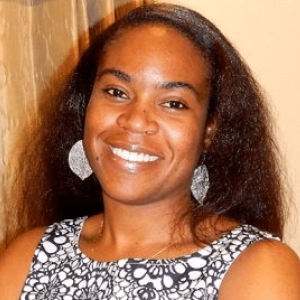The Bahamas and Caribbean are biodiversity hotspots — boasting diverse terrestrial and marine ecosystems. These biodiverse ecosystems are critical for sustaining life, regulating our climate, providing food, and supporting livelihoods, but are facing unprecedented threats.
Within the next 30 years, scientists estimate that approximately 50% of existing species will become extinct because of unsustainable practices. Globally, a total of 543 species have been lost over the last 100 years and we are currently experiencing the 6th mass extinction event, also known as the Anthropocene era.
So what can we do?
The ability to conduct and communicate science is vital to increase awareness and build advocacy for the changes needed to effectively manage, protect and preserve biodiversity, which forms the foundation for our ability to exist and survive on Earth. For the past two months, the Perry Institute for Marine Science (PIMS) has been partnering with Friendsof the Environment to share the importance of biodiversity conservation for marine and terrestrial species and ecosystems through a special series of social media posts leading up to May 22, 2021– the International Day of Biological Diversity or Biodiversity Day.
To kick things off, we developed a poster to simplify the International Union for the Conservation ofNature (IUCN) Red Listing Process and explain how species are categorized. The IUCNRed List of Threatened Species was established in 1964 to assess the global extinction risk of species and recommend actions for their protection and conservation.
Scientific data (e.g. surveys, habitat distribution and use maps) are analyzed to determine how healthy and stable populations are. This information is evaluated against a set of standard criteria and assessed species are assigned to one of 8 categories: data deficient, least concern, near threatened, vulnerable, endangered, critically endangered, extinct in the wild or extinct. “Threatened” species are those with a greater risk of becoming extinct. They are classified or designated as either vulnerable, endangered or critically endangered on the IUCN Red List.

Using examples from around The Bahamas and Caribbean, each week we discussed the conservation status (from data deficient to extinct) of several marine and terrestrial species including reef-building corals, fish, shark, turtles, mammals, birds, reptiles and amphibians along with recommended actions the public can take to assist with their recovery.

Spotlight on groupers for Endangered Species Day — May 21st, 2021
Groupers are a diverse group of predatory marine fish, including many ecologically and economically important species that are listed as threatened on the IUCN Red List due to a combination of their life history characteristics and unsustainable fishing practices. However, in some countries like The Bahamas, local names for groupers often differ from established common names.
Educational tools like this new grouper poster (below), will be valuable moving forward to assist with correct species identification and monitoring when working with local fishers and other stakeholders. This is an important, yet simple step we have taken to protect threatened grouper species and promote sustainable fisheries and the poster may be useful for other countries in the region as well.

“We’re part of the solution #ForNature”! The theme for Biodiversity Day 2021 was selected to “serve as a reminder that biodiversity remains the answer to several sustainable development challenges. From nature-based solutions to climate, health issues, food and water security, and sustainable livelihoods, biodiversity is the foundation upon which we can build back better”.
To achieve effective biodiversity conservation we need:
ü Data from scientific research and monitoring
ü Timely implementation of science-based legislations and policies
ü Sustainable and adaptive management of natural resources
ü Education and outreach to reduce human threats to the environment and encourage compliance with legislations and policies for conservation management of natural resources.
Getting Involved – Science & Conservation in Action!
At PIMS, we conduct scientific research in The Bahamas and Caribbean across a range of marine ecosystems including coral reefs, mangroves and seagrasses that are highly diverse and provide many valuable ecosystem services and functions. Our research aims to support biodiversity and promote sustainability through science-based conservation and restoration strategies for resilient marine ecosystems (e.g., coral reef and mangrove restoration). However, you can also make a difference. YOU are part of the solution! Here are some simple steps you can take to support biodiversity conservation:
1. Purchase sustainably caught seafood
2. Comply with fishery regulations & fish responsibly
3. Refuse, reduce, reuse, repurpose and recycle
4. Properly dispose of trash and other chemicals/waste products
5. Use moorings (when available)
6. Avoid anchoring on reefs
7. Conserve energy and water
8. Speak up! If you see something wrong, say something!
9. Become an ocean advocate/warrior – follow environmental and research non-governmental organizations (NGOs) to learn about issues and ways you can get involved or collaborate with people in your neighborhood / community to discuss, elevate & champion environmental issues (e.g., overfishing, climate change, waste management, sustainable coastal development)
10. Volunteer and/or donate to support NGOs that work to protect the environment.

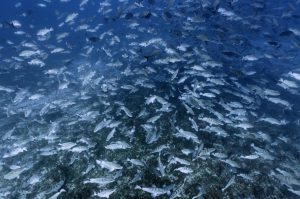
Thriving Fish Spawning Aggregation Inspires Hope for the Future
Nassau grouper FSA in Ragged Island during January 2025. | © André Musgrove Fish Spawning Aggregations & Nassau Grouper Imagine witnessing thousands of fish gathering in a synchronized spectacle, moving
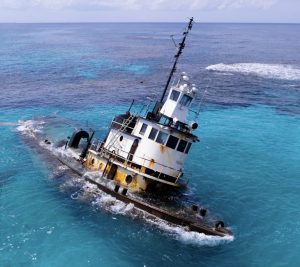
A Year Later, Stranded Tug and Barge Still Scars Reef in Fowl Cays National Park–Residents Demand Accountability
A haunting aerial view of the grounded tug and barge in Fowl Cays National Park—still embedded in coral a year later, a stark reminder of the cost of inaction. Photo
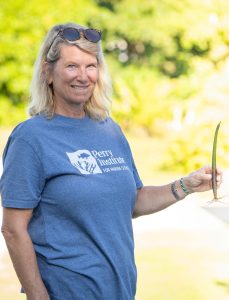
Women Leading Mangrove Restoration in The Bahamas
Have you ever wondered who’s behind the scenes saving our environment, right in our own backyard? Picture a group of energetic, determined women rolling up their sleeves and diving into
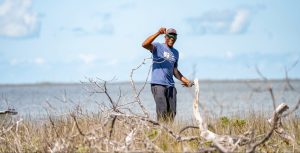
Rewilding the Marls of Abaco: PIMS Plants 100,000 Mangroves and Counting in 2024
As the afternoon sun bathes the Marls of Abaco in golden light, Bahamian boat captain Willis Levarity–locally known as “Captain to the Stars”–stands ankle-deep in soft, warm mud. A broad
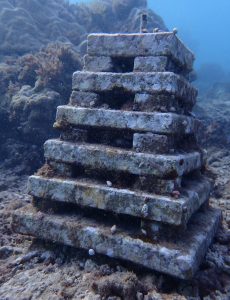
Unveiling Coral Reef Biodiversity: Insights from ARMS Monitoring Structures
An ARM teeming with new coral recruits and a diversity of marine life, highlighting reef recovery and biodiversity Understanding Coral Reef Biodiversity Most new PhDs in the natural sciences move

7 Key Takeaways from COP16: Confronting Coral Reef Challenges in a Changing Climate
United #ForCoral: Experts, advocates, and leaders from across the globe join forces at COP16 for the #ForCoral conference, hosted by the International Coral Reef Initiative. Together, they’re driving urgent action


